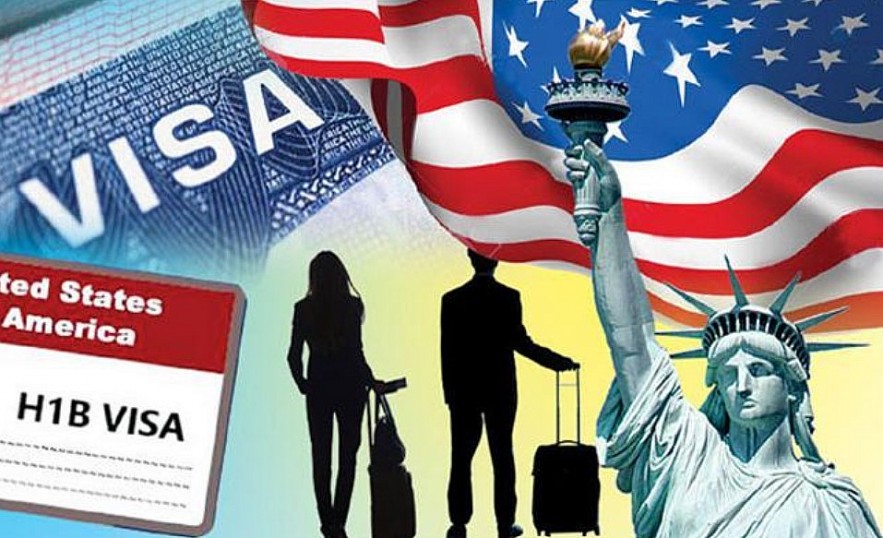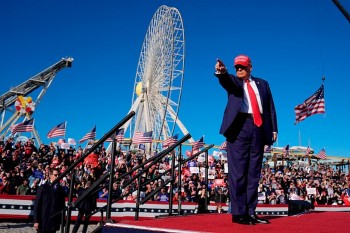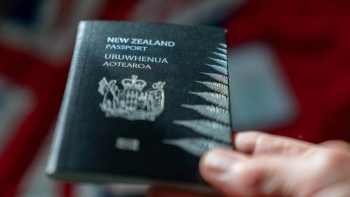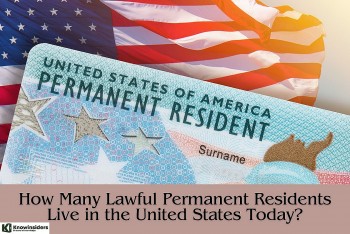Major US Visa Changes in 2025: What You Must Know Now!
 |
| US Visa Policy Changes For 2025 |
As the United States prepares for a new administration under President-elect Donald Trump, set to assume office on January 20, 2025, significant shifts in visa and immigration policies are anticipated. Trump's previous tenure as president saw a strong focus on tightening immigration rules, and early signals suggest that his 2025 administration will pursue similar reforms. Among the most impacted areas are the H-1B visa program, the H-2A and H-2B visa systems, and broader immigration regulations that could affect applicants worldwide.
Overhaul of the H-1B Visa Program
The H-1B visa is critical for U.S. companies, particularly in the technology and engineering sectors, to hire foreign talent for specialty occupations. However, changes are on the horizon that could alter the landscape for both applicants and employers.
New Regulations Under Review
On Thursday, the final rule identified as 1615-AC70 was submitted to the White House Office of Information and Regulatory Affairs (OIRA). The U.S. Citizenship and Immigration Services (USCIS) previously released draft regulations aiming to revise eligibility criteria for specialty occupations. Key changes include:
-
Degree Requirements: A stricter interpretation of degree qualifications for specialty roles is expected. This means that applicants may need to demonstrate that their degree directly aligns with the offered position's requirements.
-
Lottery System Adjustments: Earlier finalized changes to the annual lottery system, implemented ahead of the fiscal 2025 lottery, aim to level the playing field. These changes prioritize fairness and equal chances for all applicants rather than favoring certain categories.
Currently, the H-1B visa operates under an annual cap of 85,000 visas, with 20,000 visas reserved for applicants holding a U.S. master’s or higher degree. With the anticipated regulatory changes, applicants may need to prepare for stricter eligibility verification and increased competition.
Impact on Applicants and Employers
The Trump administration's focus on employment-based visas historically involved increasing scrutiny to protect American jobs. These reforms are expected to:
-
Increase the burden of proof for employers to demonstrate the necessity of hiring foreign workers.
-
Introduce measures to prevent abuse of the program, including stricter auditing processes.
-
Potentially reduce reliance on H-1B visas as a cost-saving measure, a point of contention raised during Trump's earlier presidency.
For applicants, this means heightened competition and an increased need to provide clear documentation of qualifications, job relevance, and compliance with the new requirements.
Stricter Worker Protection Rules for H-2A and H-2B Visas
In addition to H-1B reforms, regulations targeting worker protection abuses under the H-2A and H-2B visa programs have been approved. These visas are designed for agricultural workers (H-2A) and seasonal non-farm workers (H-2B), who form a vital part of the U.S. labor force.
New Worker Protection Measures
The new rules (RIN 1615-AC76) include:
-
Combating Exploitation: The regulations aim to address illegal fees and exploitation that some workers face. Employers found violating these rules may face penalties.
-
Employer Penalties: Employers engaging in illegal practices could be banned from utilizing these visa programs for up to four years.
These measures are intended to create a fairer environment for foreign workers while holding employers accountable. Applicants under these categories should anticipate more stringent vetting processes and additional safeguards to prevent exploitation.
 Which U.S. Citizens Could Be Deported Under Trump’s Plan? Which U.S. Citizens Could Be Deported Under Trump’s Plan? |
Broader Immigration Policies Under Trump’s Administration
President-elect Trump’s anticipated approach to immigration policy in 2025 is expected to be a continuation of his earlier emphasis on stricter regulations. Trump’s platform has historically prioritized reducing both legal and illegal immigration, with the following key elements likely to emerge:
Focus on Legal Immigration
While Trump’s administration previously focused on illegal immigration, the new term may see greater attention to legal immigration systems, including:
-
Revisiting work visas, family-based immigration, and pathways to citizenship.
-
Introducing additional background checks and vetting for all visa categories.
-
Potentially reducing the overall number of employment-based and family-sponsored visas.
Increased Scrutiny and Enforcement
Applicants may face enhanced scrutiny during the visa application process. This includes:
-
Expanded Document Requirements: Applicants should be prepared for increased demands for proof of employment, qualifications, and intent to return to their home country after visa expiration.
-
Longer Processing Times: Stricter reviews and audits may result in delays in visa approvals and renewals.
For individuals planning to apply for U.S. visas in 2025, being proactive in organizing paperwork and adhering to new guidelines will be essential.
What Applicants Need to Do Now
Given the anticipated policy changes, visa applicants should start preparing well in advance to improve their chances of approval. Below are practical steps to consider:
Stay Informed
Closely follow updates from official U.S. government agencies, including the USCIS, the Department of State, and the White House. Regulatory changes can occur quickly, and staying informed ensures compliance with the latest rules.
Strengthen Your Application
-
Gather Strong Documentation: Ensure that all academic degrees, employment records, and professional qualifications are up-to-date and well-documented.
-
Work Closely with Employers: For employment-based visas like H-1B, coordinate with employers to ensure all required paperwork is accurate and thorough.
-
Consult Immigration Experts: Given the complexities of the upcoming changes, seeking legal advice or guidance from immigration professionals can provide clarity and improve application success.
Prepare for Increased Competition
Stricter eligibility criteria and lottery system changes may intensify competition for limited visa slots. Applicants should:
-
Focus on roles that align strongly with their academic and professional background.
-
Consider alternative visa options if the H-1B or H-2 programs become more restrictive.
FAQs About US Visa Policy Changes in 2025
1. What are the main changes to the H-1B visa program?
The key changes include stricter degree requirements for specialty occupations and a revised lottery system to ensure fairness. Employers and applicants will face increased scrutiny during the application process.
2. How will the new H-2A and H-2B rules affect workers?
The new regulations aim to prevent worker exploitation by banning employers who engage in illegal practices, such as charging illegal fees, for up to four years.
3. Will processing times for visa applications increase in 2025?
Yes, stricter scrutiny and additional vetting processes could lead to longer visa processing and approval times.
4. How can applicants prepare for the new visa rules?
Applicants should stay updated on policy changes, gather thorough documentation, and consult immigration professionals to ensure compliance and readiness.
5. Are there alternatives to the H-1B visa program?
Yes, depending on qualifications, applicants may explore other employment-based visas such as the L-1 (intra-company transfer), O-1 (extraordinary ability), or EB-2 and EB-3 green card categories.
Conclusion: Navigating the New Visa Landscape
As the U.S. prepares for a new administration under President-elect Donald Trump, significant changes to visa policies are on the horizon. From the overhaul of the H-1B visa program to stricter worker protections under the H-2A and H-2B systems, applicants can expect a more challenging and competitive process.
Understanding these changes and preparing proactively will be crucial for individuals and businesses relying on U.S. visas. By staying informed, strengthening applications, and seeking professional guidance, applicants can navigate the evolving visa landscape more effectively in 2025.
The upcoming reforms may bring uncertainty, but they also underscore the importance of preparation and adaptability. Whether you're an aspiring professional, an employer, or a worker seeking seasonal employment, staying ahead of the curve will be key to securing opportunities in the United States under the new policies.
 Top Strongest and Weakest Passports In The World Top Strongest and Weakest Passports In The World Passport holders of some countries in the world have power thanks to the government’s visa free policies. If you are citizens of the following countries, ... |
 Full List of Countries that You Can Get a ‘Digital Nomad’ Visa Full List of Countries that You Can Get a ‘Digital Nomad’ Visa This article includes useful information on the digital nomad visa, such as: what a digital nomad visa is and how it works, and what countries ... |
 Permanent Residents in the US: Rights, Responsibilities, Limitations And Green Card Permanent Residents in the US: Rights, Responsibilities, Limitations And Green Card Lawful permanent residents are vital to the U.S. population's cultural diversity and economic strength. Understanding this group's data and dynamics is crucial for immigration policy ... |























